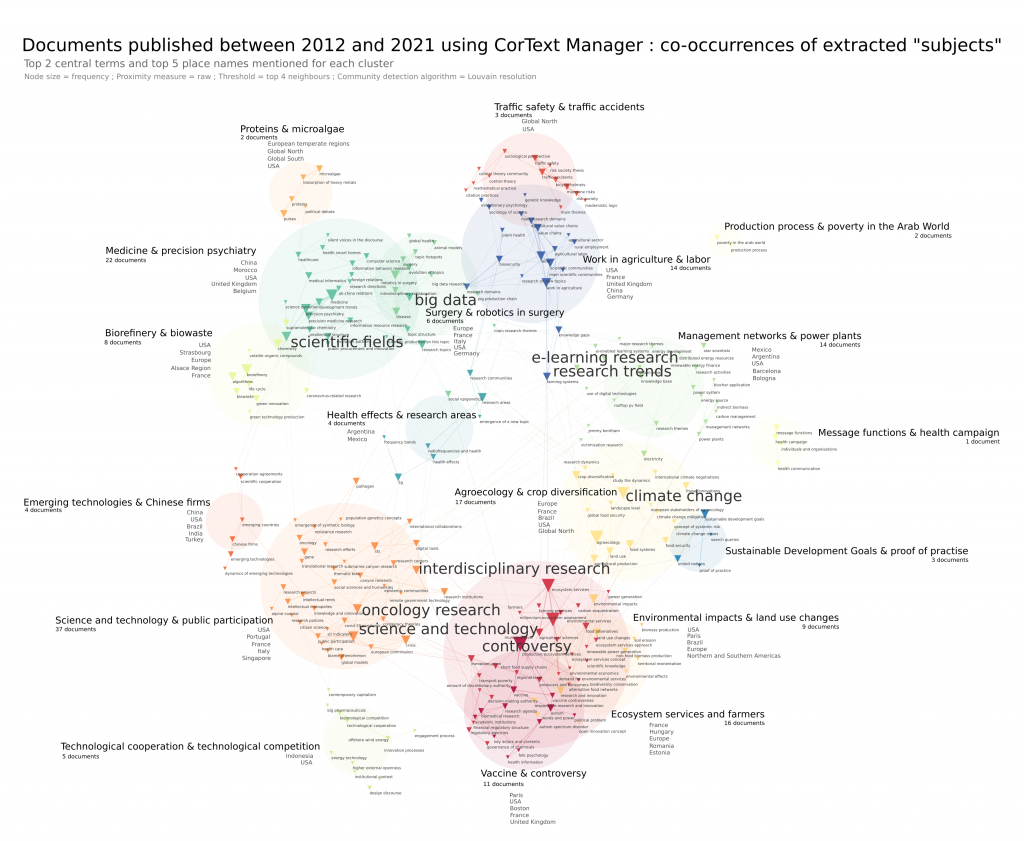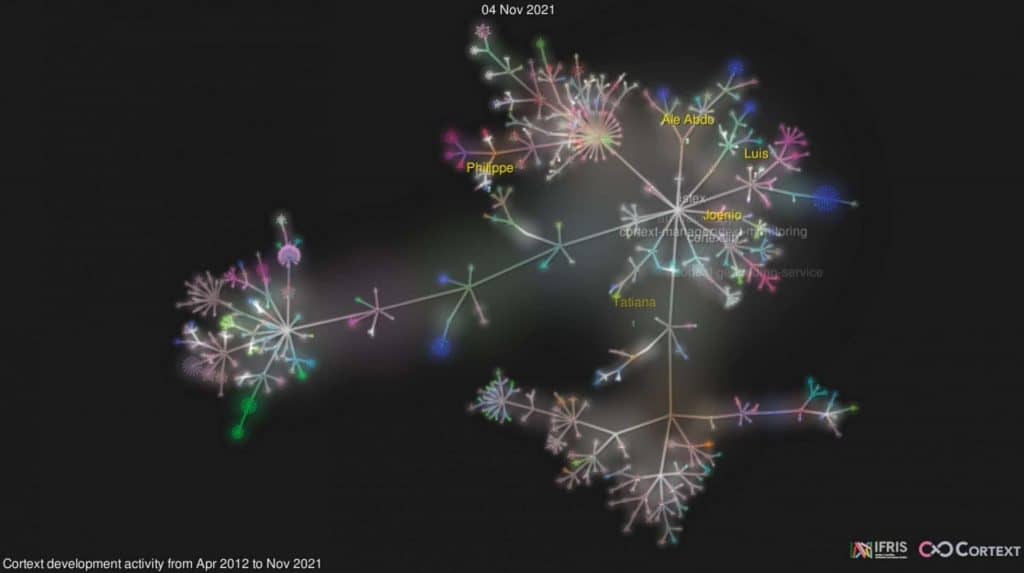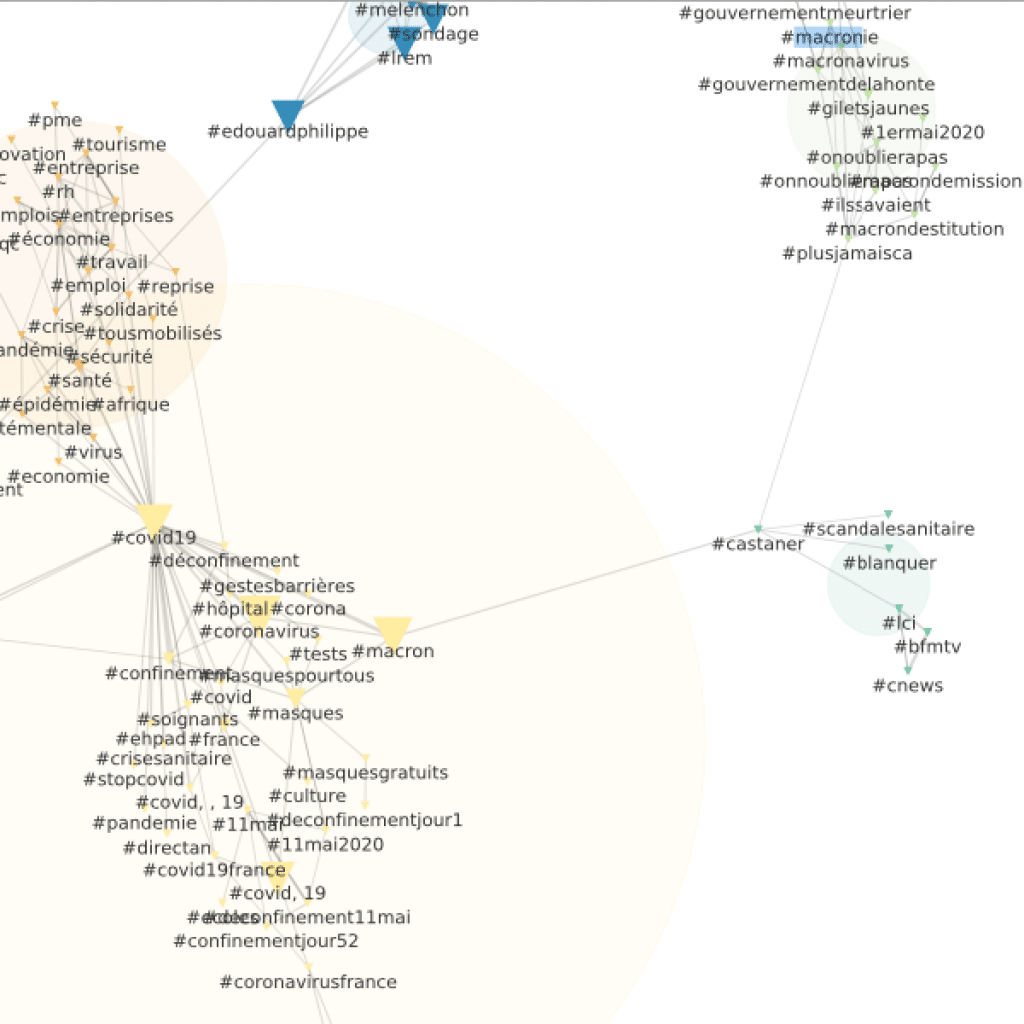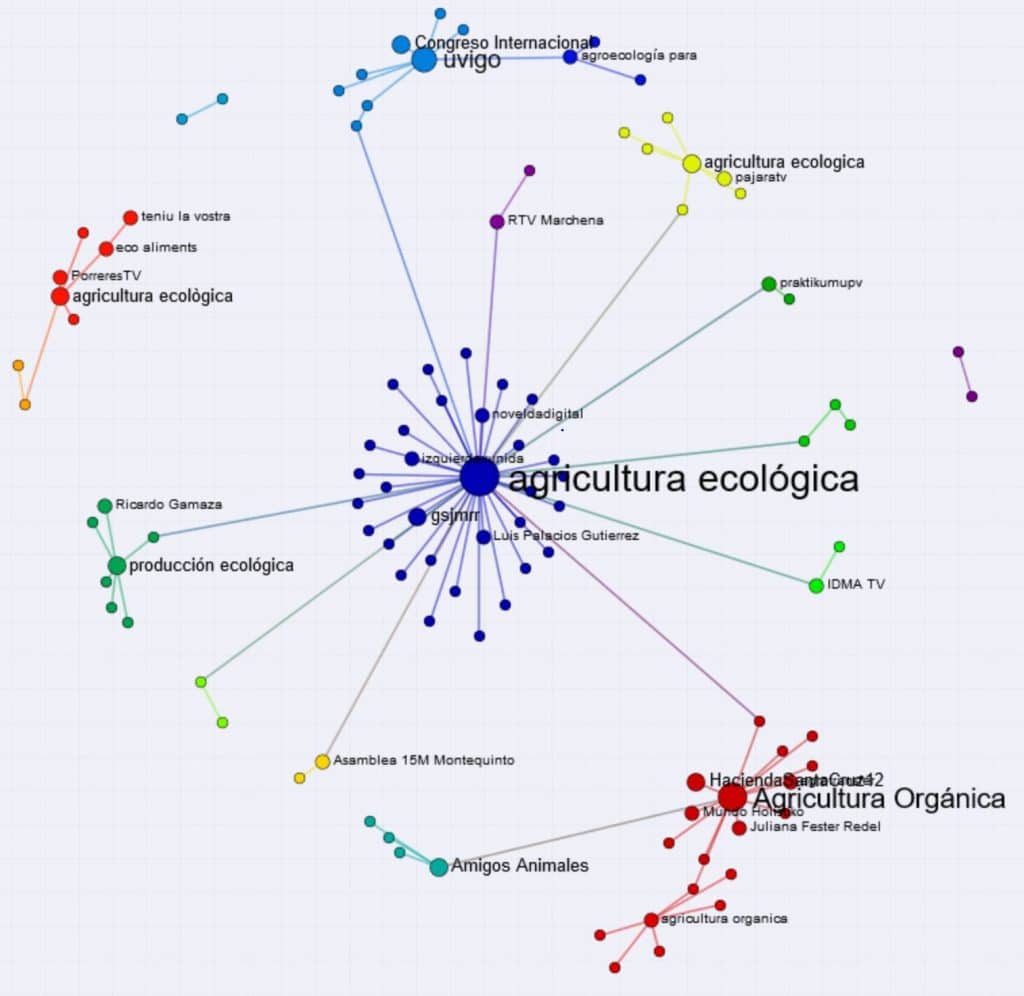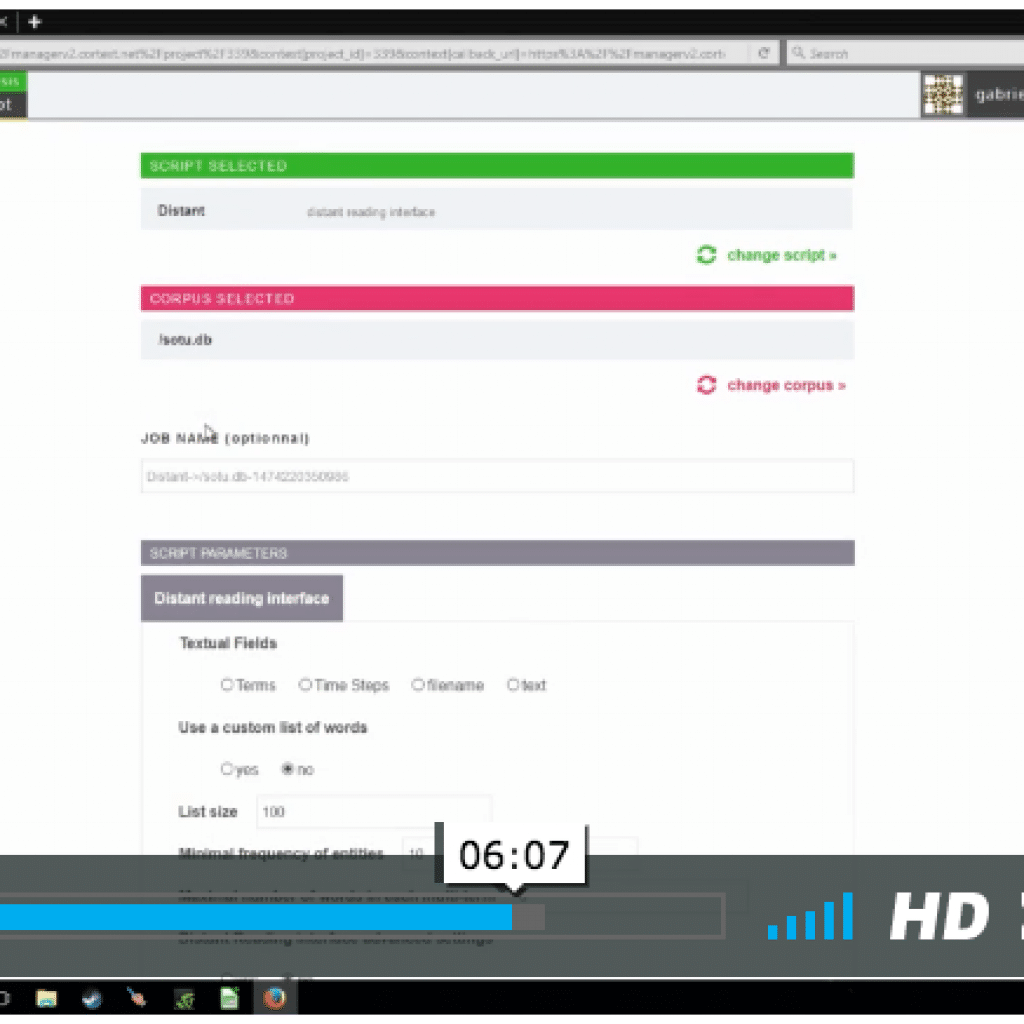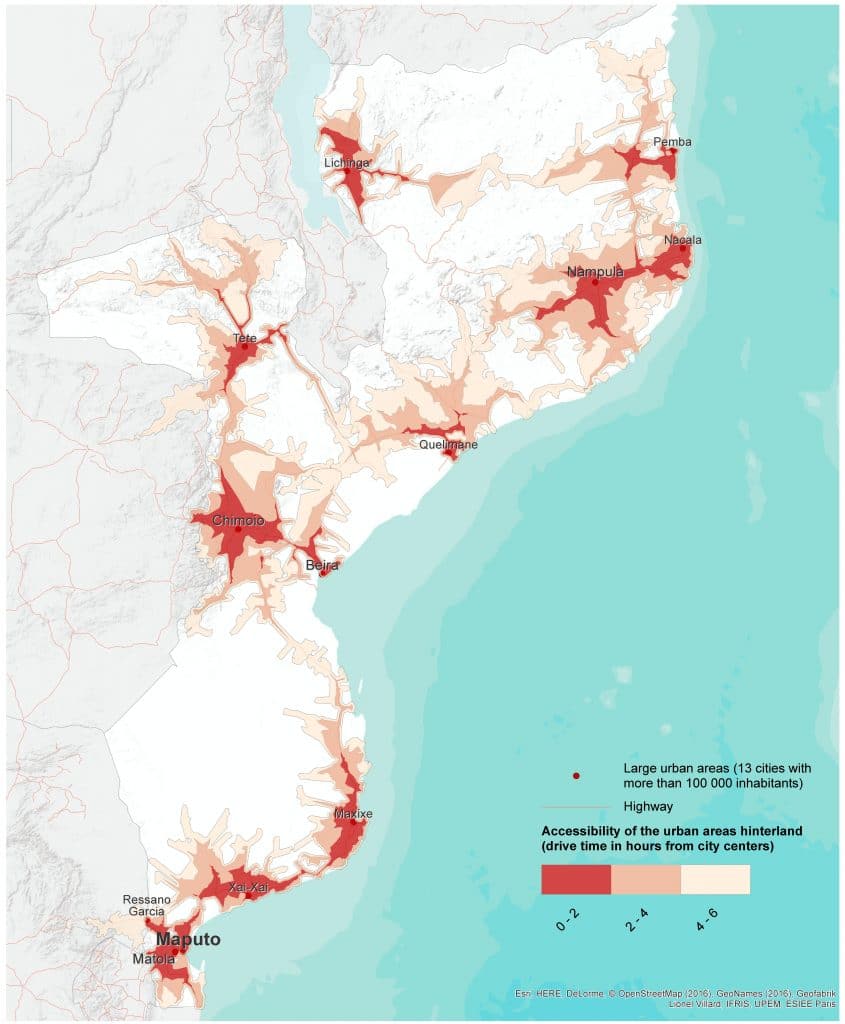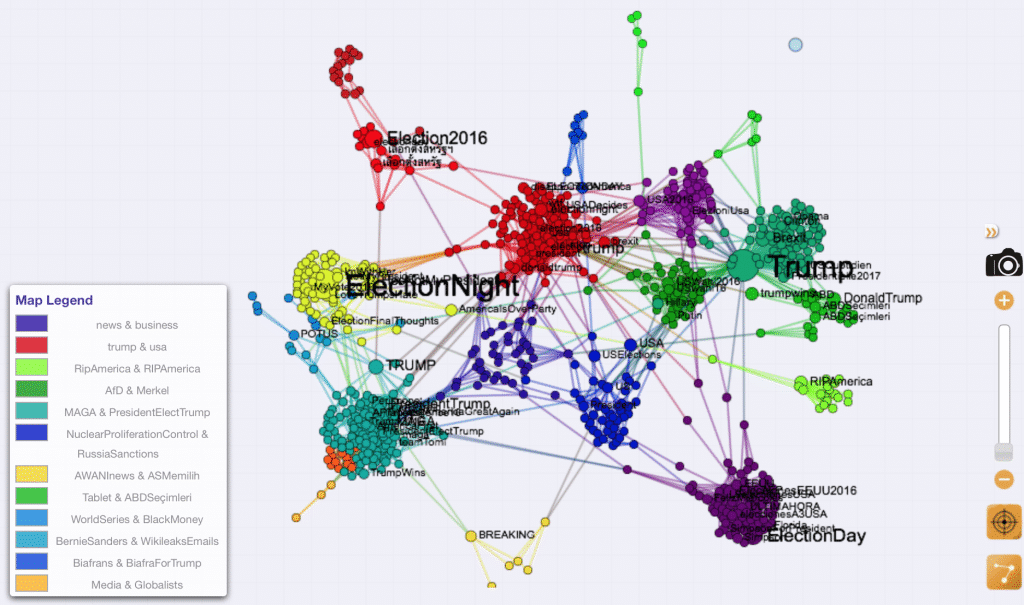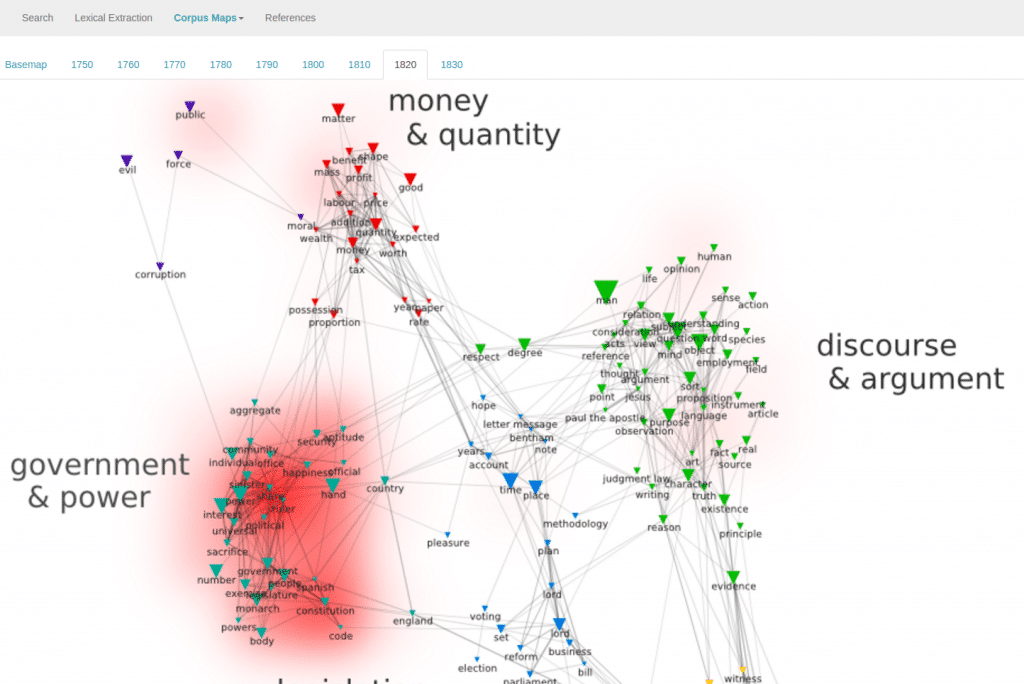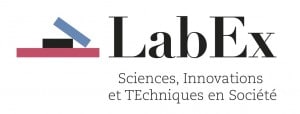Long trends on twitter: intertemporal clusters combining hashtags and terms on Scientometrics, Altmetrics, Bibliometrics and Science Of Science
Long trends on twitter: inter-temporal clusters combining hashtags and terms, for all tweets on Scientometrics, Altmetrics, Bibliometrics and Science Of Science from Jan. 2017 to dec. 2021, on a semester base. Query used to extract tweets: lang:en (Scientometrics OR “ScienceOfScience” OR “Science Of Science” OR “Altmetrics” OR “altmetric” OR “bibliometrics” OR “bibliometric” OR “citation metrics” […]
[fr] Présenter CorTexT Manager en 2 minutes
Cortext Manager est une application web construite par des chercheurs et par des ingénieurs à destination de chercheurs en sciences humaines et sociales, au plus près des questions portées par les chercheurs qui nous entourent et par notre communauté d’utilisateurs. Cette application web peut produire un grand nombre d’analyses différentes qui ont trait aux champs […]
Analysis of the scientific production that mentioned the use of CorText Manager
There are two ways to understand what CorTexT Manager is. The first one is to look at what has been achieved in terms of methods, tools and therefore lines of code. The second one is studied below, by analyzing (here with CorTexT Manager) what academic users have published using… CorTexT Manager. Our study of the […]
10 years of CorText Manager v2
It took us more than 10 years to come with CorText Manager version 2 as it is now! Behind the scenes CorText Manager begun with a first version in 2009. More than thirty contributors has worked directly or indirectly on the two versions, year after year. All the ideas, inspirations, all this accumulation of pieces […]
Covid-19: Pandemic and online social movements
A Covid-19 Data Sprint was organized by the D2SN Master of UGE. On June 30th, 2020 was presented an analysis of how, during the lockdown, people continued to express their dissatisfaction through online social movements. This analysis is based on the study of Twitter hashtags during this period. The study focuses on the evolution of […]
A digital enquiry of the agroecological turn in Costa Rica
This project has been developed by Bertha Brenes in LISIS laboratory with Nicola Ricci and Marc Barbier. The objective of the project is to drive a digital enquiry of the agroecological turn in Costa Rica, more largely in Central America through the setup of consistent and appropriate datasets in order to analyze the production and […]
Release of Tutorial for CorTexT Manager
Users can benefit from a Full Documented tutorial for the Online Application CorTexT Manager Detailled Documentation: https://docs.cortext.net/ Video Tutorial: https://docs.cortext.net/video/ Watch how : to produce a valide csv file for data parsing, and use corpus explorer script to build a corpus from txt files, enrich it with proper time steps and use distant reading script: to use advanced options in Network Mapping script with this video: to use the capacity offered by Word […]
Cities and hinterlands accessibility in Mozambique by isochrones map
The aim of this map is to build a cartographic representation of drive times for freight transport companies. The method used is replicable, as an example the map shows the drive times from the 13th most important cities in Mozambique. This model is based on an open source dataset of transport networks (OpenStreetMap, 2016) in […]
Hashtag cooccurrence network of tweets about Trump
Mapping election night voices Hashtag cooccurrence network of tweets about Trump (collected thanks to Twitter search API and using the simple query “trump”) during the election night. A second map shows hashtags that have been converted from their original casings into lower-cased featuring. Colored sets of hashtags illustrate the various kinds of concerns raised by Twitter users coming […]
Mapping the Bentham Corpus
The goal of this work is to provide relevant corpus representations for the manuscripts of British philosopher and social reformer Jeremy Bentham (1748-1832). This is a large corpus, owned by University College London (UCL). Until recently, the manuscripts were for the most part untranscribed, so that very few people had access to the corpus to evaluate […]

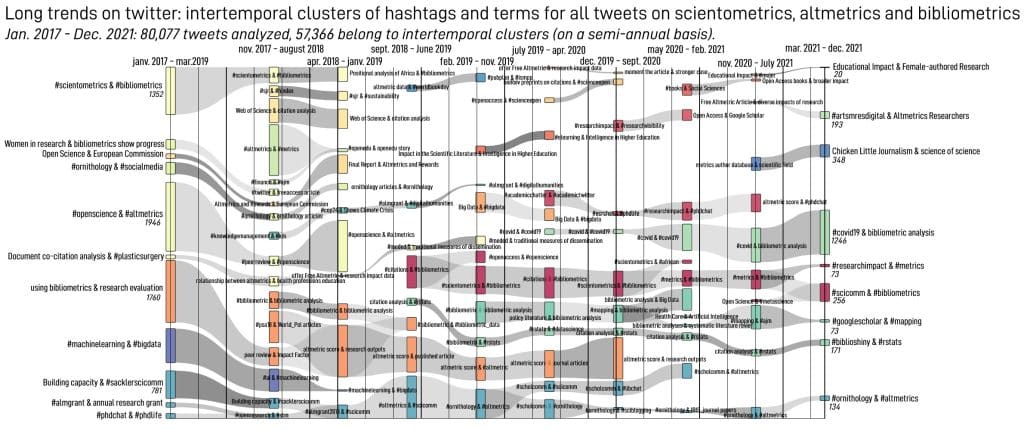
![[fr] Présenter CorTexT Manager en 2 minutes](https://www.cortext.net/wp-content/uploads/cortext-manager-video-scaled-1024x691.jpg)
